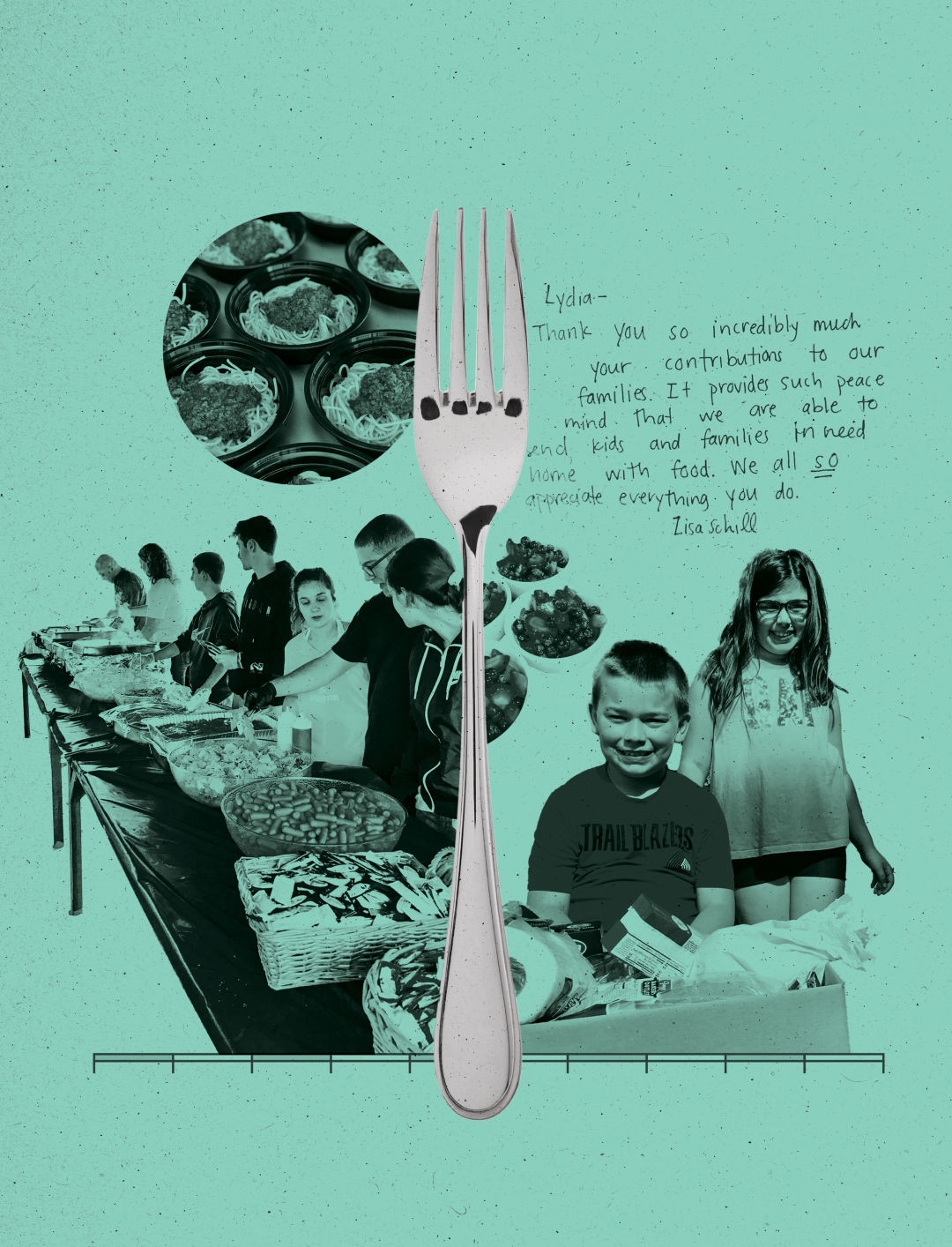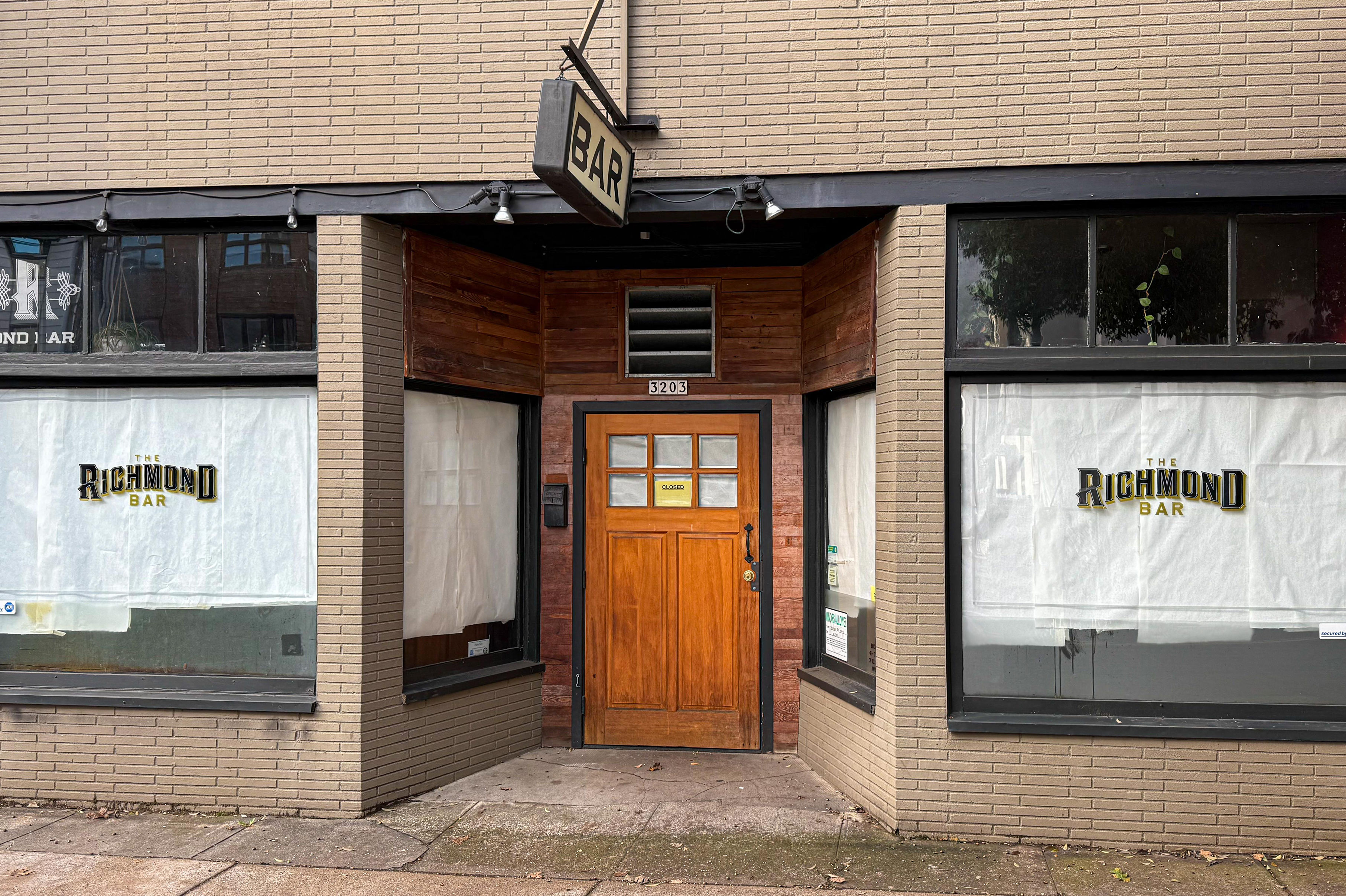This Portland-Based Organization Is Helping Kids Get the Healthy Meals They Need

Our Giving Table - Winner: Best New Nonprofit
Image: Brian Breneman
Late at night, while most of us were sleeping or binging on Netflix, the stoves at downtown’s Al-Amir restaurant were just starting to dance. Baba ghanouj, grape leaves, and other of Al-Amir’s Lebanese menu fixtures were sent to their room. In the house: roasted organic chickens, pepperoni pizzas, fat burritos, fruit bowls, and low-sugar snacks. The customers for all this good eating? An important but often invisible clientele: Oregon’s hungry kids and foster-case youth. At the stove, relentlessly, is Lydia Massaad. Since 2017, she’s transformed her family’s restaurant into an off-hours mission statement—to cook nutritious and deliver mom-made meals for food-insecure kids, in a state that has far too many of them. She calls it Our Giving Table.
In 2014, Massaad reached out to her friends who were teachers, asking how she might help hungry kids. Three years later, backed by private donations and an eager network of “on call” supporters, Our Giving Table was an official nonprofit and a go-to source for 17 local schools with food-insecure kids. Another recipient: six branches of the state’s Department of Health Services, which works with kids in foster care, a Massaad priority. By 2020, those late-night stoves fired up some 1,700 meals a week.
“My family is Lebanese,” says Massaad. “Our lives revolve around food. Growing up, I never imagined kids without lunches. When we lack nutrition our brains aren’t thriving. My parents taught us to care about your neighbor, to help each other, to feed each other.” She took it to heart, volunteering tirelessly since age 16. She even delivers most of the food herself.
The pandemic has put the home-cooking arm on hold, but not the philosophy. For now, Our Giving Table has shifted to family-size food boxes, up to 150 per week, supported by weekly food drives at Al-Amir. On a recent afternoon, Lincoln High School’s football team dropped off a ton of donated groceries. A guy she calls “Pete, the baker from Amsterdam” brought his whole-grain loaves. Massaad added fresh apples, which she scored in the Gorge. Fresh fruit is a personal holy grail. “Some of my kids have never seen blueberries before,” she says. “I want them to know they are worthy of good food, just like us.”
Food is just the springboard. As Massaad sees it, “giving,” also means mentorship and household goods. “These families look at you as a lifeline,” she says. “When someone needs something, I reach out to our community. Currently, “desks” are high on her wish list. “She’s like an angel in the skies,” says Shannon McGrath, a single mom who met Massaad through her DHS caseworker. “I just needed a box spring. Lydia showed up, saw what we needed, and created a place to call home. Not just a mattress on the floor—couches and matching furniture. My daughter has a whole new wardrobe. She’s helped our whole community; women from domestic violence backgrounds. It’s easy to go back to that. She’s helped us feel independent, empowered.”
Next up: stations all around the state, in struggling places, ready to make sure kids have the tools and nourishment to thrive. At least that’s Massaad’s three-year plan. Can the 51-year-old do it? I think we know that answer. Volunteer or donate, ourgivingtable.com




